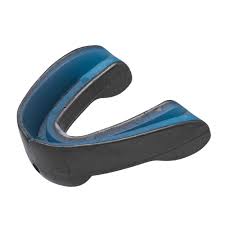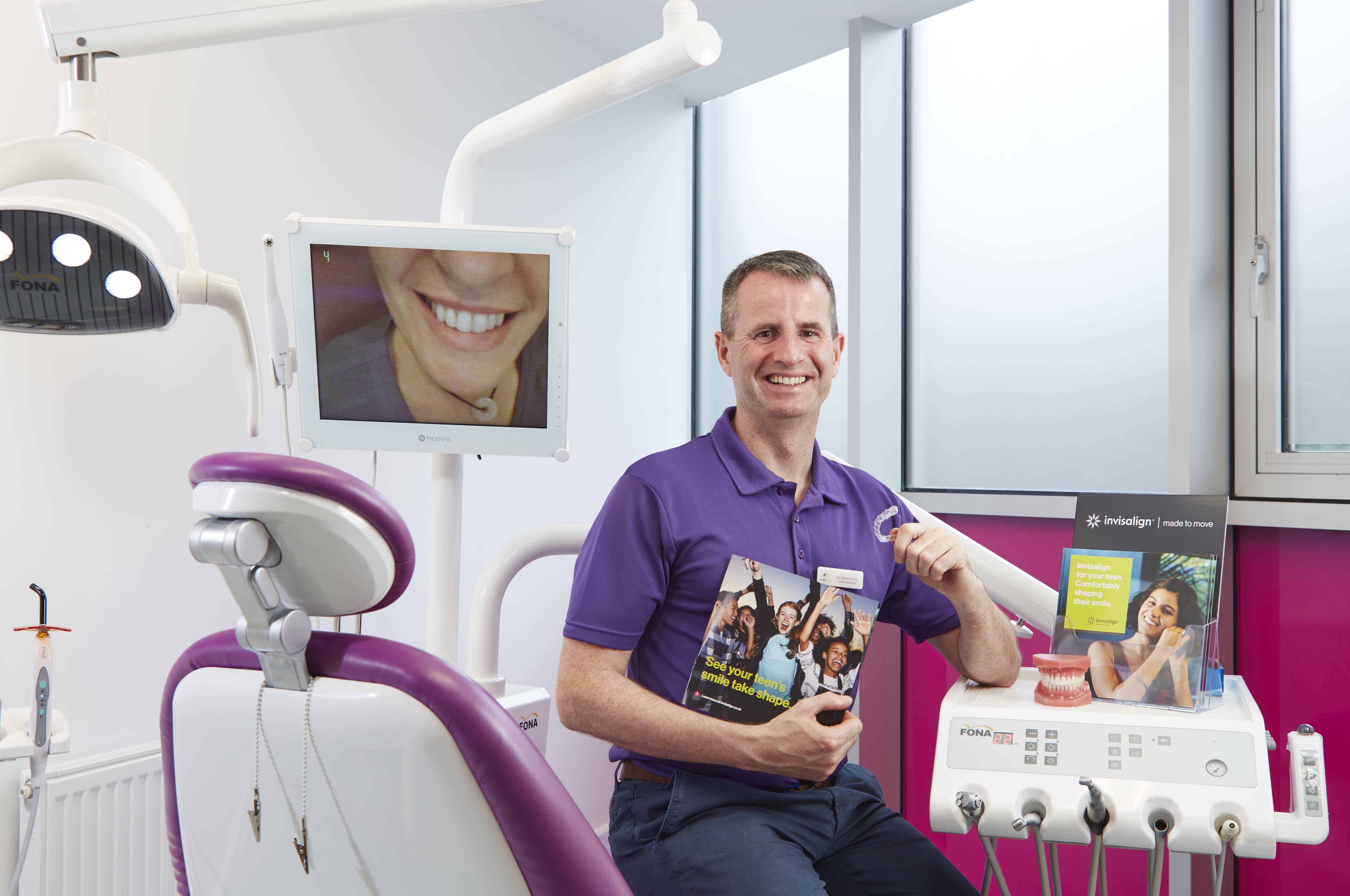How a custom-fitted mouth guard and gum shields work and why you need them
If you play a contact sport, you risk injuring your teeth. Many sports hold a risk of contact and therefore serious dental injury. The good news is that it can be avoided.
Custom-fitted mouthguards can protect you from some serious sporting injuries, such as broken jaws, fractured, cracked or knocked-out teeth, cut lips and tongues. You don’t just have to be playing obvious contact sports like rugby or hurling. Non-contact sports like basketball, football and skateboarding, can carry a real risk of accidental collision, and resulting dental trauma.
A custom-fitted mouthguard works by absorbing and spreading the impact of the damaging blow. It is fabricated based on an impression of your teeth and jaw taken by us.
A mouthguard that is custom-fitted by us is far superior to an over-the-counter mouthguard because it is specially designed to fit the exact contours of your mouth. It is resilient, balances your bite and allows speech and normal breathing.
If it is properly used, stored, and checked by us every year, it should last several seasons.
In comparison, self-fitted, over-the-counter mouthguards, (boil-and-bite mouthguards) do not protect the teeth, are loosely fitted, impede breathing and speaking, and can even wedge in the back of the throat at impact which could be life-threatening.
Custom-fitted mouthguards, by virtue of their exact fit, let you talk normally, don’t restrict your breathing and stay firmly in place, allowing you to concentrate on playing the sport you love. You should consider it a mandatory part of your sporting equipment, no matter your age or experience.
To keep your mouthguard in tip-top working order, you’ll need to keep it out of the sun, wash it in cold water after use, keep on the supplied plastic model cast and get us to make sure it’s still OK when you go in for your regular check-ups.
Contact us today to have yours’ fitted.
I don’t want traditional metal braces – do I have other options ?
Thanks to advances in technology, your orthodontic treatment options may include ceramic (tooth-coloured) braces, lingual braces (which are placed behind the teeth) or Invisalign clear aligners.
Today’s standard metal braces are much smaller and sleeker than those of even a generation ago.
Ceramic Braces– work in the same way as traditional braces, but the brackets are made from a clear, transparent ceramic material. The braces are less visible to others, which makes them a popular choice for adults who need orthodontic treatment.
Lingual Braces– are completely invisible so the only one who knows that you are having orthodontic treatment is you. These braces are made of metal but are fitted on the back of your teeth instead of the front. They are 100% customised to follow the contours of your teeth for comfort and performance.
Invisalign- uses a series of removable and clear aligners that are custom moulded to fit you. The virtually invisible aligners gradually reposition your teeth into their correct position. You wear a new set of aligners for 2 weeks at a time until your treatment is complete.
In a consultation appointment with our specialist orthodontist Dr Ronan Perry, he will work with you to determine what type of treatment will be best suited to your treatment requirements and your lifestyle. Orthodontists have the training and experience to provide you with all the treatment options to make sure you get your best smile.
To be an orthodontist means that the individual must first graduate from dental school, and then successfully complete an additional 2-3 years of studying orthodontics.
Only those who have this level of formal education may call themselves “orthodontists.”
And only orthodontists are eligible for admission into the Orthodontic Society of Ireland.
Use their Find an Orthodontist tool to locate nearby members.
Dentalhouse are having an orthodontic open day on Tuesday 16th of July.
To book your complimentary consultation Click Here
Our Top Travel Tips For Your Dental Health
 Make Time for a Checkup- If you can, schedule your next regular visit before your holidays. Have a thorough exam so that your dentist can spot any problems before they happen. You’ll have peace of mind, and your dentist will have the most up-to-date information on your teeth, including x-rays.
Make Time for a Checkup- If you can, schedule your next regular visit before your holidays. Have a thorough exam so that your dentist can spot any problems before they happen. You’ll have peace of mind, and your dentist will have the most up-to-date information on your teeth, including x-rays.
In case of an overseas emergency– If you are out of the country and absolutely in need of a dentist, get in touch with the local consulate or embassy. While talking to the concierge at your hotel is okay, ask the consulate and their employees for a recommendation. It’s an independent recommendation and not someone who may be driving business because of a contract.
Forget Your Toothbrush?- If you find yourself temporarily without a toothbrush, rinse vigorously with water to wash away some of that cavity-causing bacteria. You could also put some toothpaste on a clean washcloth or your clean finger in a pinch.
Proper Toothbrush Transport– Letting your toothbrush air dry is how you keep your toothbrush clean at home, but that’s not always possible on holidays. Keeping your toothbrush clean and out of contact with other things is more important that making sure it’s dry on holidays. A resealable plastic bag keeps your toothbrush separate from everything else in your luggage. When you get to your destination, pop it open and let your brush air dry.
Pack some sugar-free chewing gum- Chewing sugarless gum can help relieve ear pressure during a flight – and help keep cavities at bay. Research shows that chewing sugarless gum for 20 minutes after a meal can help prevent cavities. That’s because it gets saliva flowing, which helps wash away cavity-causing bacteria.
When In Doubt, Brush with Bottled Water- If you are in a country where the water supply is compromised – or you’re on a wilderness adventure but aren’t sure how clean the stream is – always use bottled water to brush. When finished, rinse your brush well with bottled water to reduce the risk of getting sick.
Book your pre-holiday check-up here
